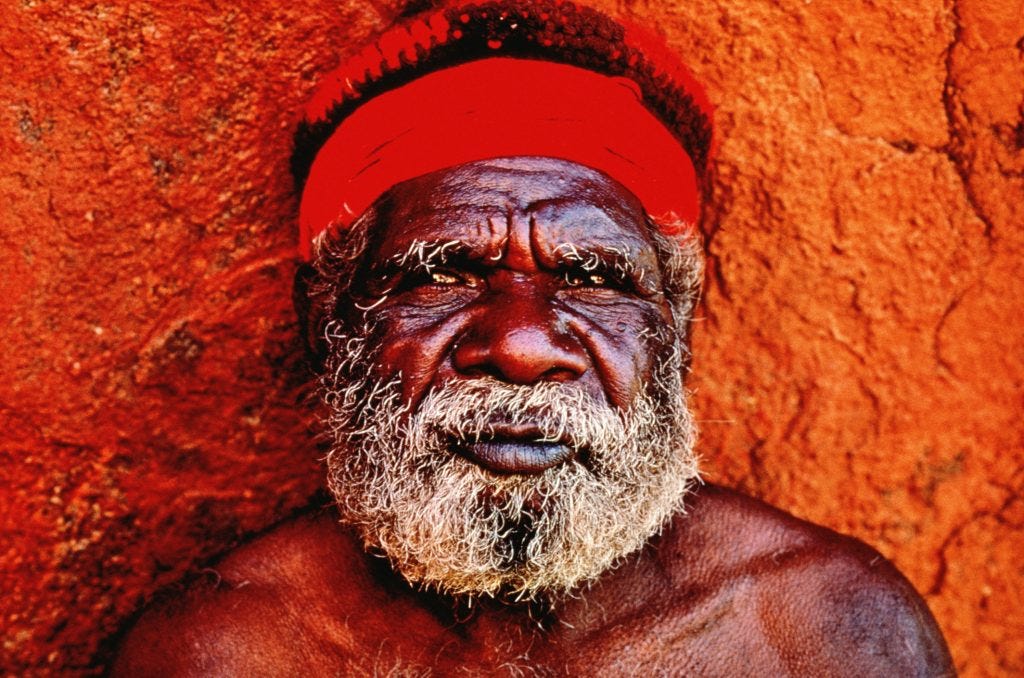It’s Not Our Fight. Vote Yes.
I read hundreds of bills when I was advising Senator Leyonhjelm.
Some of the bills would significantly alter the size of government or the extent of government interference in the lives of individuals. For these bills, my advice and the Senator’s decisions were aligned and easy to predict.
But most bills were not like this.
We should consider ourselves lucky that, in Australia, the descendants of displaced inhabitants aren’t reaching for rockets
Most of the bills wouldn’t make Australia less libertarian or more libertarian. They represented tinkering with the labyrinthine statute book of a bloated state. They were fiddles while Rome burned; a re-arranging of deckchairs on the Titanic.
There were bills to change the composition of agencies that shouldn’t exist, the elements of pointless regulations, and the application process for unwarranted handouts.
I still provided advice on these uninspiring, run-of-the-mill bills. If such a bill might marginally improve the functioning of our dysfunctional bureaucracy, and if it was supported by a smattering of individuals who had to deal with that bureaucracy, I would advise the Senator to vote for the bill.
I feel much the same way about the Voice referendum, which is why I will be voting yes.
… if we instead see the election of some Aboriginal leaders who believe in the individual rather than the collective, it would be worth it.
The Voice referendum isn’t a particularly libertarian issue. It has little bearing on the extent of government interference in the lives of individuals, or on the size of government.
A bureaucracy making representations is not an infringement on anyone’s freedom, and the passing of the referendum would do nothing to reduce the existing ability of anyone to make representations. The Voice is hardly the evil of affirmative action.
The passing of the referendum would require the indigenous bureaucracy to be reshaped, and would likely increase it in the short term. But the overall size of Australia’s indigenous bureaucracy, and the bigger issue of indigenous-specific handouts, would remain a question for Australia’s parliaments. Reducing indigenous-specific bureaucracy and handouts will remain an important task for libertarians, whether the referendum passes or not.
Some argue against introducing race into our Constitution. But, unfortunately, race is already in our Constitution. While there remains a constitutional power to make laws about race, and while we only specifically legislate about the Aboriginal race, it is reasonable for there to be an explicit constitutional provision about an Aboriginal body making representations to the Parliament and Government. Just as, if we were silly enough to have laws about Dutch Australians, it would be reasonable to be explicit that Dutch Australians can make representations to the Parliament and Government.
Some argue that the Constitution should remain limited to our major institutions. But our Constitution already has provisions for minor institutions. Consider Section 105A, inserted by referendum in 1928, to underpin the now moribund Loans Council. I suspect that those who wax lyrical over our Constitution have only read bits of it.
Other arguments against the Voice referendum represent a cavalcade of fallacies.
The passing of the referendum would require the indigenous bureaucracy to be reshaped, and would likely increase it in the short term.
There are straw-men: arguments against a body whose advice needs to be waited for and listened to, when no such body is being proposed.
There are slippery slopes: arguments against separate things, like treaties and a different Australia Day, that will be argued for regardless of the referendum result.
And there’s ad hominem: arguments against proposers rather than the proposal.
For me, there are two half-decent arguments in favour of the Voice referendum.
Firstly, Aboriginal affairs couldn’t get much worse. If the Voice delivers more of the same, we haven’t lost anything. But if we instead see the election of some Aboriginal leaders who believe in the individual rather than the collective, it would be worth it.
The Voice is hardly the evil of affirmative action.
Secondly, saying no would disempower Aboriginal leaders pushing the Voice and empower militant Aboriginal leaders instead. If you say no to Martin Luther King you end up with Malcolm X. We should consider ourselves lucky that, in Australia, the descendants of displaced inhabitants aren’t reaching for rockets, as occurs in other countries. We should not be so naive to think that such violence is not possible in Australia.
Despite the popularity of tribalism, not every issue warrants a strong, certain, and unwavering response. Some issues warrant only weak support or opposition, or even indifference. This is one such occasion.
As our libertarian principles are not at play, we should be prudent and gracious, and vote yes – then move on to more consequential matters.
The post It’s Not Our Fight. Vote Yes. appeared first on Liberty Itch.



